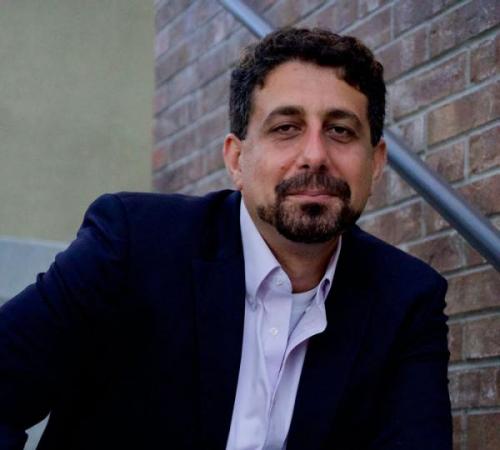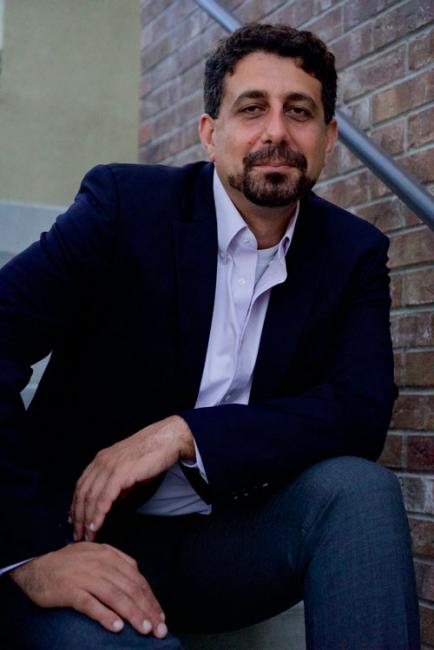
 Associate Professor of Computer Science and Engineering Hadi Esmaeilzadeh has been named the IEEE Technical Committee on Computer Architecture’s “Young Computer Architect” for 2018, for his contributions to new computer architectures that underlie the growing success of artificial intelligence (AI) and machine learning applications.
Associate Professor of Computer Science and Engineering Hadi Esmaeilzadeh has been named the IEEE Technical Committee on Computer Architecture’s “Young Computer Architect” for 2018, for his contributions to new computer architectures that underlie the growing success of artificial intelligence (AI) and machine learning applications.
“Two things have propelled AI and machine learning to the next level. One has been the advances in the algorithms, but the second one has been the advances in the microarchitecture of processors,” Esmaeilzadeh explained. “The amount of computation that is required to actually get something decent done with AI algorithms is so massive that without proper support from the architecture of the processors, that level of performance would not be possible.”
Esmaeilzadeh said he has been fascinated by machine learning ever since his days as an undergraduate, studying neural networks. He and his colleagues have warned, however, that multicore processors and general purpose processors will not be enough to sustain computation-hungry machine learning applications and the increasing levels of performance that we expect out of our phones, laptops and other devices.
Esmaeilzadeh was the first author of a highly-cited 2011 paper outlining this dilemma, which was reported on in The New York Times.
To cope with this problem, companies like Microsoft and Google have since turned to specialized chips and programmable accelerators for certain types of applications, Esmaeilzadeh said. But it can be difficult to maintain specialized hardware that keeps up with changes in the algorithms and applications of AI and machine learning.
“How do we bridge this gap between specialized hardware and these ever-evolving algorithms? This has been the challenge that I have been focusing on,” Esmaeilzadeh said.
In his research and in his role as Associate Director for Industry Research at the Center for Machine-Integrated Computing and Security at UCSD, his approach has been to develop what he calls algorithm-defined specialized computing stacks. “We are going to the origins of these AI applications, and understanding the mathematical and theoretical foundations of their algorithms,” he explained. “When we understand that, we can design specialized computing stacks which constitute programming languages, compilers, runtime systems, operating systems, and also microprocessor architecture.” The IEEE award is particularly gratifying to Esmaeilzadeh, because “it shows the impact that my students and I have had in the community,” he said.
“Hadi was a great addition to the department and the architecture group last year. This is a tremendous recognition of how quickly he has made a significant impact on the research community and on industry with his research,” said CSE Chair Dean Tullsen. “While very well deserved, this award places him among a very select group of researchers that have received this award previously.”
Esmaeilzadeh received his Ph.D. from the University of Washington, and was an assistant professor at the Georgia Institute of Technology before joining the Computer Science and Engineering faculty in 2017. He has received several awards during his career, including the Air Force Young Investigator Award in 2017; two Qualcomm Research Awards and two Microsoft Research Awards in 2017 and 2016; two Google Research Faculty Awards in2016 and 2014; and the Lockheed Inspirational Young Faculty Award in 2016.
The IEEE award recognizes outstanding research contributions by an individual who has completed his or her Ph.D. within the past six years. Esmaeilzadeh received the recognition at the 45th International Symposium on Computer Architecture, held June 2-6 in Los Angeles. UCSD researchers presented an unprecedented eight papers at the ISCA conference this year.
Written by Becky Ham

